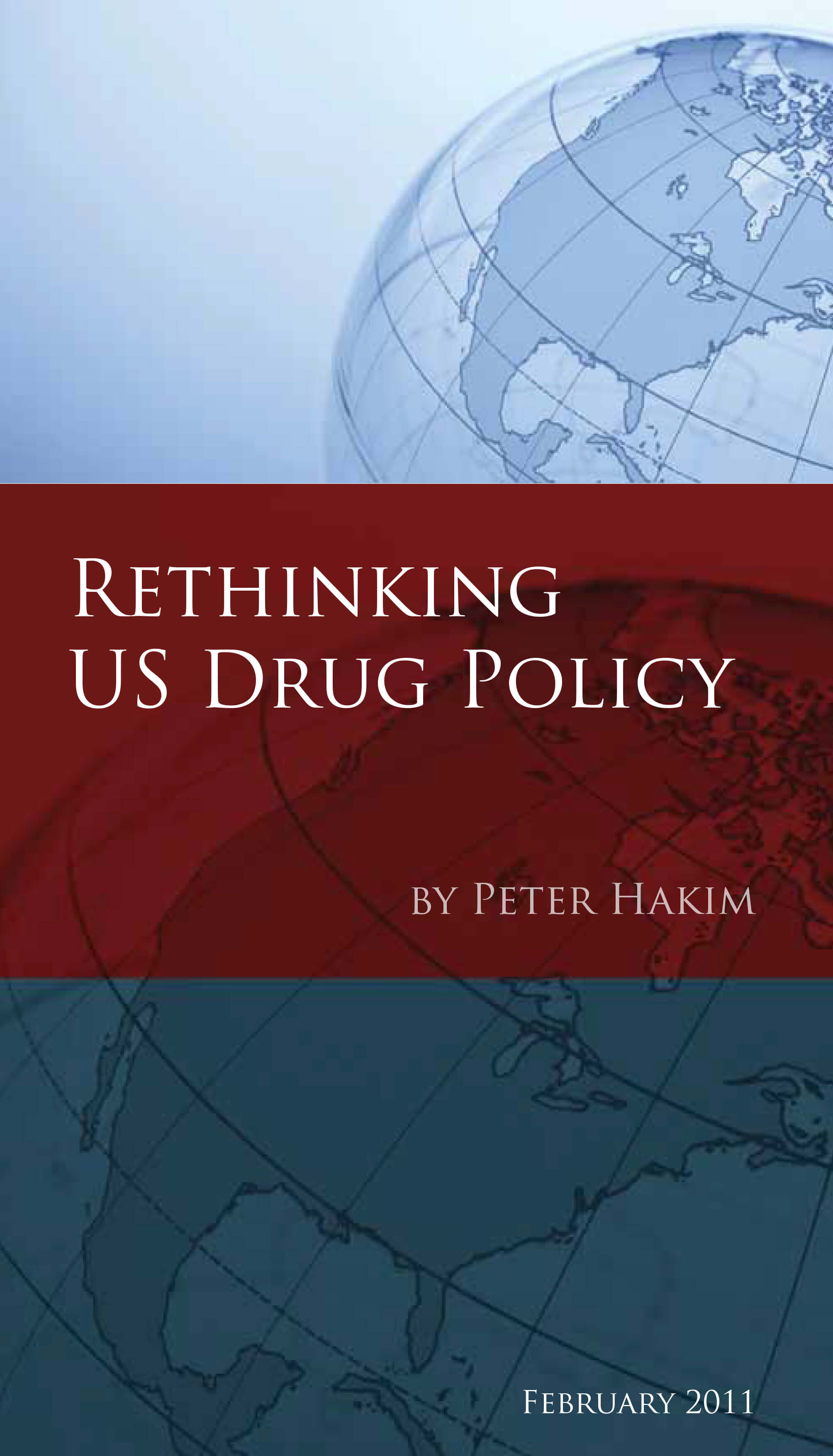
Rethinking US Drug Policy
Report Summary
This report, published in February 2011, was a joint effort of the Inter-American Dialogue and the Beckley Foundation.
US citizens today are clearly unhappy with their government’s anti-drug policies. In fact, a majority of Americans now believe that their forty year “war on drugs” has failed. Yet, despite the costs and growing opposition to US anti-narcotics strategy across Latin America, the US debate on drug policy remains muted. Indeed, there is hardly any debate at all in Washington over the US approach to illicit drugs, in part because there are no viable alternatives.
Recent Congressional initiatives to review US anti-drug strategy suggest that lawmakers recognize the need to re-think current policies. Meanwhile, in Latin America, distrust of US policy toward drugs continues to grow. A highly regarded report released in 2009 by a commission headed by three of the region’s most respected former presidents called for an open-minded search for alternative policy options that could reduce the damage of drug trafficking and abuse.
To encourage debate on the issues and the search for alternative approaches, the Inter-American Dialogue launched its drug policy project in 2009. This report is one of the critical products of that initiative. It offers six proposals to set the stage for a thorough rethinking of the US and global approach toward illicit drugs.
We would like to thank the Open Society Institute and Alvar-Alice Foundation for their valuable support of the Dialogue’s work on drug policy. We also want to thank Peter Reuter and Eduardo Posada Carbó, authors of background papers commissioned for this project.
Podcast
- All
Links
- All
Support
- All
BIPRP
- All
Science Talk
- All
Amanda's Talks
- All
- Video Talk
- Featured
- 2016 Onwards
- 2011-2015
- 2010 and Earlier
- Science Talk
- Policy Talk
One-pager
- All
Music
- All
Amanda Feilding
- All
Events
- All
Highlights
- All
Psilocybin for Depression
- All
Current
- All
Category
- All
- Science
- Policy
- Culture
Substance/Method
- All
- Opiates
- Novel Psychoactive Substances
- Meditation
- Trepanation
- LSD
- Psilocybin
- Cannabis/cannabinoids
- Ayahuasca/DMT
- Coca/Cocaine
- MDMA
Collaboration
- All
- Beckley/Brazil Research Programme
- Beckley/Maastricht Research Programme
- Exeter University
- ICEERS
- Beckley/Sant Pau Research Programme
- University College London
- New York University
- Cardiff University
- Madrid Computense University
- Ethnobotanicals Research Programme
- Freiburg University
- Medical Office for Psychiatry and Psychotherapy, Solothurn
- Beckley/Sechenov Institute Research programme
- Hannover Medical School
- Beckley/Imperial Research Programme
- King's College London
- Johns Hopkins University
Clinical Application
- All
- Depression
- Addictions
- Anxiety
- Psychosis
- PTSD
- Cancer
- Cluster Headaches
Policy Focus
- All
- Policy Reports
- Advisory Work
- Seminar Series
- Advocacy/Campaigns
Type of publication
- All
- Original research
- Report
- Review
- Opinion/Correspondence
- Book
- Book chapter
- Conference abstract
- Petition/campaign
Search type
